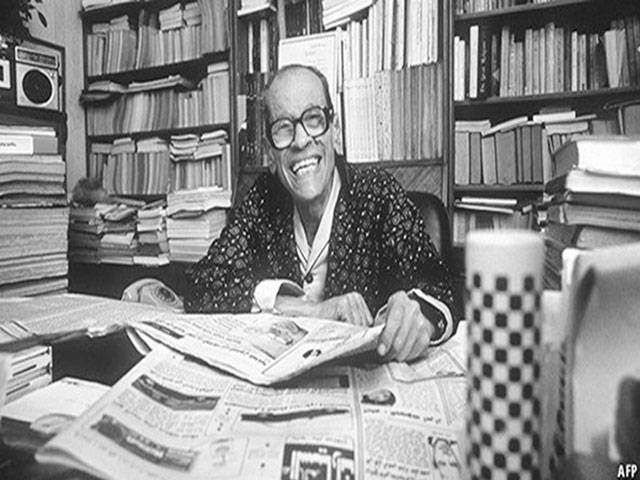“A priest’s life is spent between question
and answer –or between a question and the attempt to answer it. The question is the summary of the spiritual life.”
–Naguib Mahfouz, Khufu’s Wisdom
Naguib Mahfouz in his comfort zone.
Naguib Mahfouz, the Egyptian novelist, received Nobel Prize for literature in 1988. He got the prize for his novels that tell the story of the evolution of Egyptian society. The Cairo trilogy shows the social, political development within Egypt of those days.
In 1956, Palace Walk, the first volume of The Cairo Trilogy, came out, to be followed a year later by the other two volumes, Palace of Desire and Sugar Street. A novel on the grand scale of some 1,500 pages, the trilogy deals with three generations of the Abd al-Jawad family and extends from 1917 to just before the end of the Second World War.
In his own words, with him winning the Nobel Prize, the Arab world also won the prize for the rich tradition of storytelling in the Arab world.. Naguib along with Abdur Rehman Munif changed the landscape of Arab literature. His influence can be gauged by words of one of the young writers, al-Qaffash, “Our generation had a high regard for Mahfouz’s literary achievements.” However, he maintains that he and his colleagues felt challenged to “explore new territory”. The present day chaos in Egypt finds a mention in one of Naguib’s articles of 1990s, where he said, “Democracy is not deeply rooted in our culture. Egyptians would make sacrifices for independence, but they did not value democracy, and so, step by step, our system fell apart.” Nothing has changed much since then.






